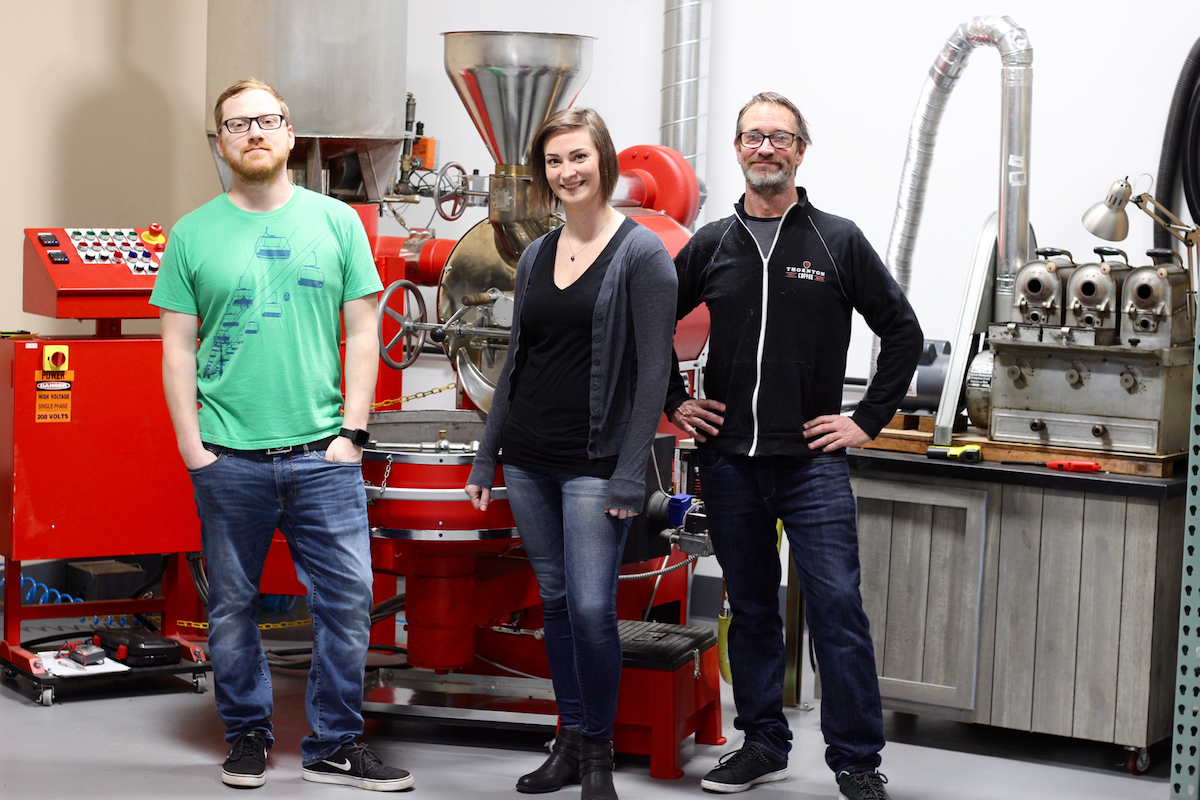
Founders of Thornton Family Coffee Roasters, from left to right: Chris Verhaalen, Rachel Thornton Verhaalen, and Paul Thornton. Photo by Daily Coffee News/Lily Kubota.
The newest roasting company in the Pacific Northwest has the immediate advantage of having one of specialty coffee’s most experienced and influential ambassadors at its helm.
Along with his daughter Rachel Thornton Verhaalen and son-in-law Chris Verhaalen — with some financial investment from another coffee veteran Tim O’Connor of Pacific Espresso — past Specialty Coffee Association president and Roasters Guild founding member Paul Thornton has launched Thornton Family Coffee Roasters in Beaverton, Oregon.
Drawing from Thornton’s more than three decades of experience as a coffee roaster and green buyer, the coffee roasting company aims to represent the values of transparency, sustainability, and accessibility, while giving customers some delicious coffees in the process.
Thornton Coffee will be focusing on wholesale for specialty retail shops and private-label customers, while also offering an e-commerce platform for the purchase of roasted beans. A walkup window for quick service just soft-launched. Additionally, the Thornton family has plans for roastery to include a tasting area, a lab space and a brewing area for customers.
A former roastmaster for huge volume companies Coffee Bean International and Farmer Brothers, Paul Thornton said the opportunity to apply that experience to a local, quality-forward roasting company of his own has been invigorating.
“We’re super excited about the business and expect it to be very successful,” he said. “The prospect of being able to take the coffee culture that exists in Portland to the suburbs of Beaverton, and provide an approachable product for coffee drinkers, is very energizing.”
Thornton said of all the lessons learned through his years sourcing, roasting and maintaining quality controls, one he intends to apply most stringently with this new venture is to always listen to customers. “They’ll tell us what they want,” he said, “but we also want to share our expertise with them.”
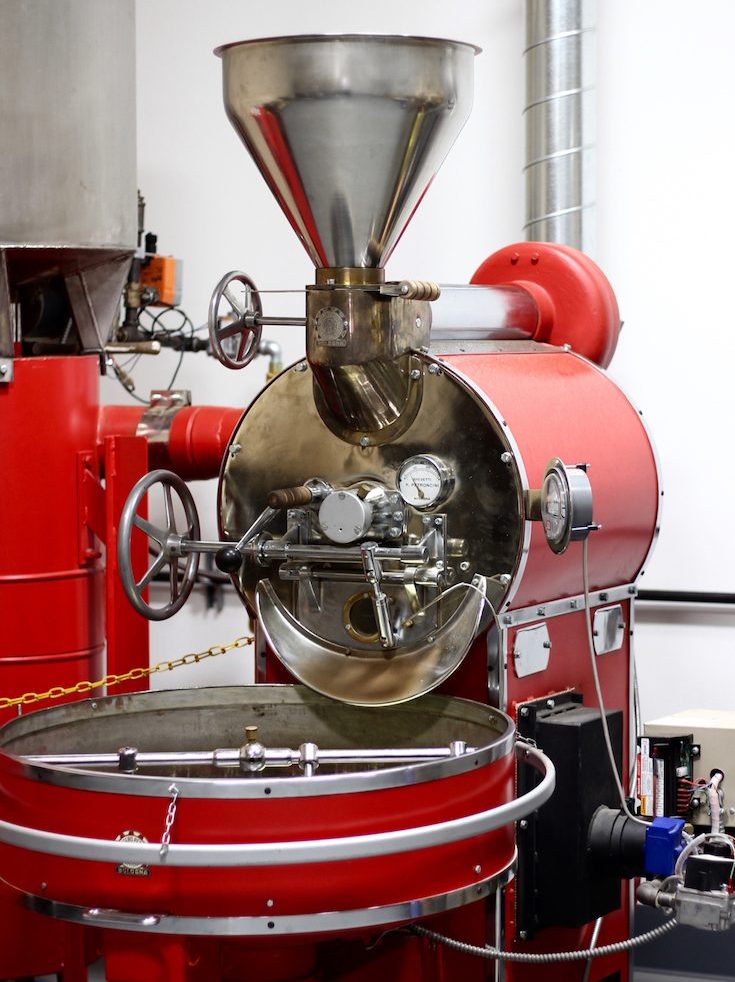
1995 15-kilo Petronchini solid drum roaster. Photo by Daily Coffee News/Lily Kubota.
The Thornton Coffee warehouse is set up with a refurbished 1995 15-kilo Petronchini solid drum roaster that can roast about 600 pounds in an eight-hour day.
“The roaster is heated using natural gas, and we have modified the gas burner to give us the ability to apply a lot of heat quickly,” Thornton said. “We added a variable speed exhaust fan in order to create high levels of airflow. The stout drum is made of solid metal, giving us an abundance of radiant heat — so we added a variable speed motor to the drum drive, allowing us to change drum speeds to create more radiant heat efficiently.”
The facility also has a 1915 3-barrel Probat sample roaster that Thornton described as one of the most durable roasters ever made. Said Thornton, “Using metals from the early 1900’s, it offers a cleanliness in the samples we cup.”
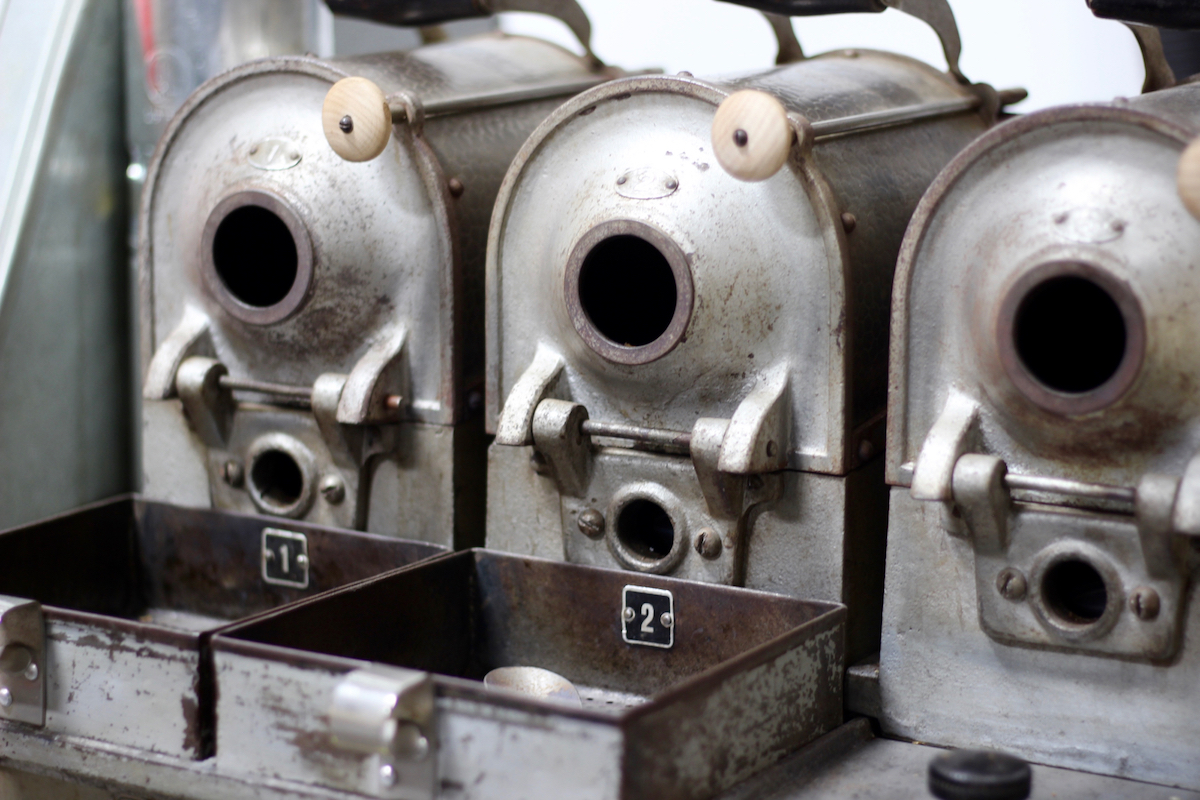
1915 3-barrel Probat sample roaster. Photo by Daily Coffee News/Lily Kubota.
Thornton Coffee plans to offer a wide range of single-origin coffees and blends, leveraging Thornton’s nearly 30 years of experience working with actors throughout the supply chain, from importers to individual farmers.
“I started traveling for the purpose of sourcing coffee in 1989, with my first trip to Guatemala,” Thornton said. “Things were so challenging back then; importers didn’t want to share who they were buying their coffee from. This made it difficult to develop direct relationships, and the best way to get around this was to just go.”
Thornton said that began to change as importing companies realized the value of the stories behind the coffees they traded. That led to yet another major shift in the coffee trade.
“Around 2000, direct trade became a more widely practiced approach to coffee buying for specialty coffee roasters — that’s when the conversation about the ways producers were being impacted at origin really started taking off,” Thornton said. “Prices have gone up for everything since 1975 — gas, groceries, you name it — but the price of coffee has stayed the same. This makes it incredibly challenging for producers.”
Thornton said he intends to keep this reality in mind while leading sourcing operations for the new family business. Said Thornton, “The only regret I have [about the business] is not doing this 15 years earlier.”
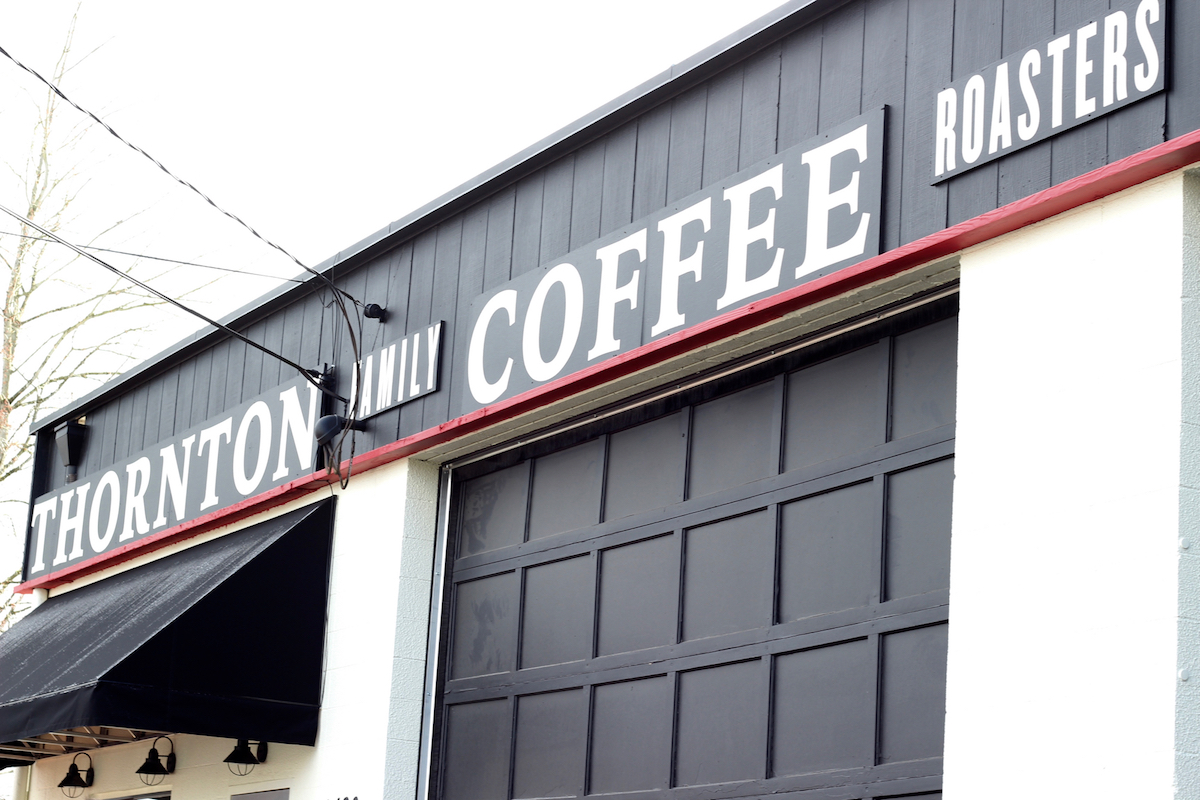
Photo by Daily Coffee News/Lily Kubota.
Lily Kubota
Lily Kubota is the managing editor and digital content manager for Roast Magazine. She is based in Southern California.



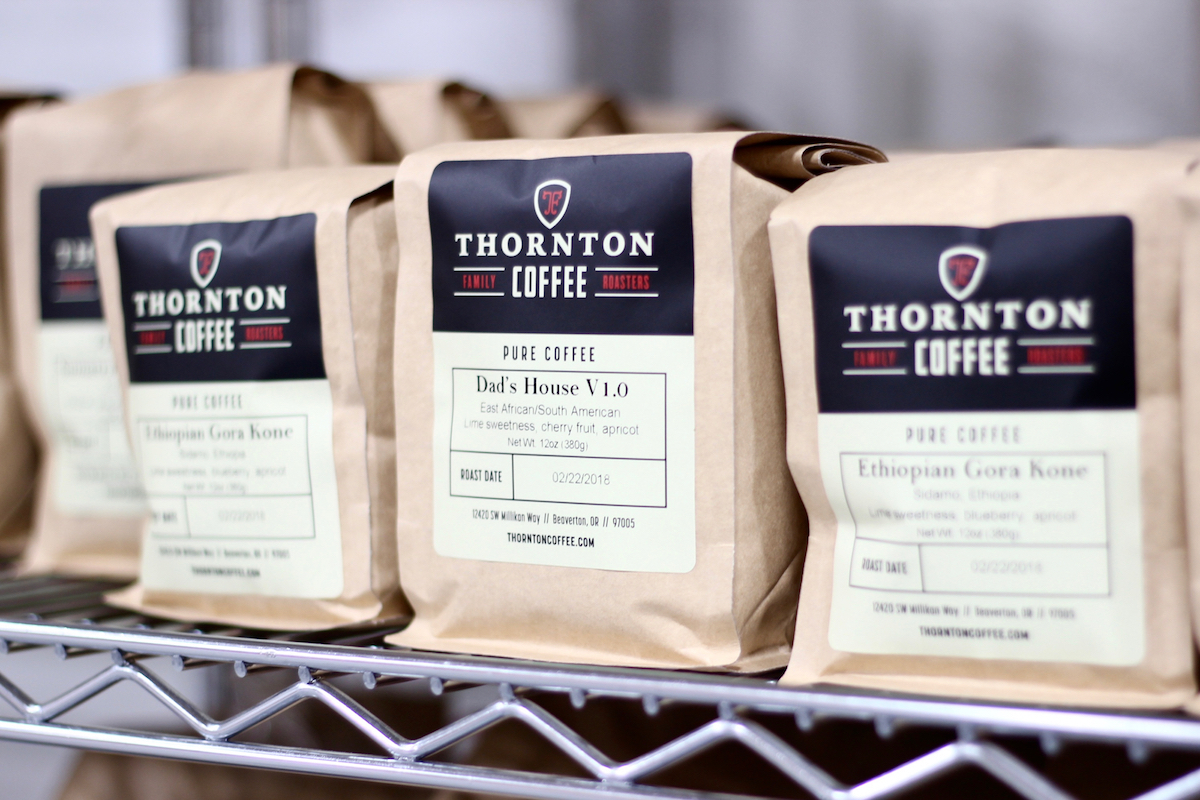



Comment